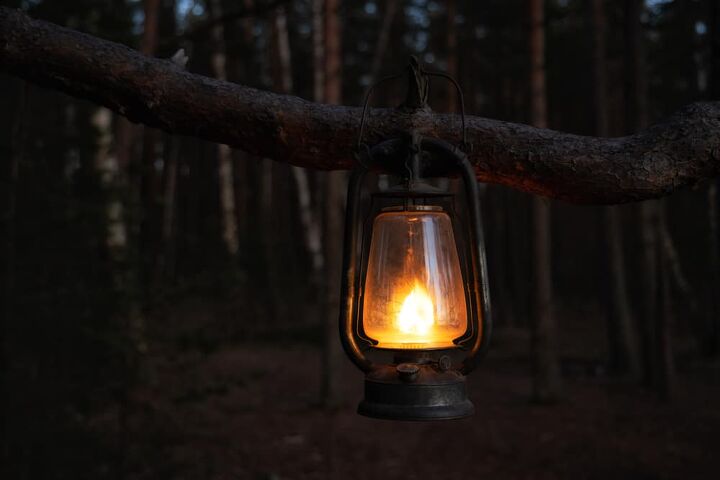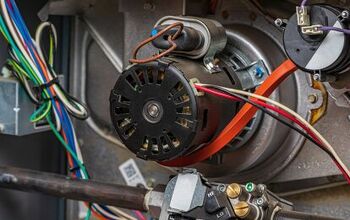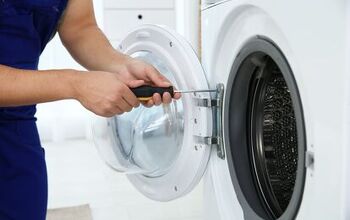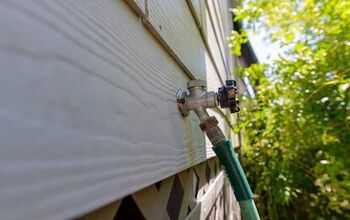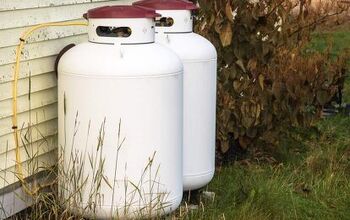Does Kerosene Go Bad? (Find Out Now!)

It’s a good idea for homeowners to have a backup plan in the event that the power goes out. While getting something like a generator might seem like a great idea, it’s not within everyone’s budget. This is where kerosene lamps and lanterns come in handy.
Since these types of power sources are used sparingly, it’s important to know about the fuel shelf life. Knowing whether or not things like kerosene goes bad can save you stress down the road.
Kerosene goes bad after 5 years when it can develop mold and sludge that renders it useless. Condensation takes over after 5 years and mold growth increases over time. Fuel alternatives such as butane, alcohol, natural gas, and charcoal briquettes last longer than kerosene and can save money.
I wanted to create the ultimate guide to knowing just how long a fuel is good for you. Whether you’re working with propane, butane, or diesel, I’ve got you covered. Let’s talk about the one fuel with the shortest lifespan first.
Emergency Fuel With Short Lifespan
There’s just one fuel you should avoid when it comes to emergency power situations. While it’s great if you’re stranded in the middle of nowhere, unleaded gasoline won’t do you any good when severe weather hits.
Unleaded Gasoline
On average, you can expect unleaded to last between six and nine months if it’s stored properly. If it’s in an airtight container, you can add a fuel stabilizer to get a few more months out of it. Over time, it will grow a gummy resin in itself.
It’s best to avoid using unleaded in anything but your car, ATV, or lawn care equipment. Putting expired unleaded into a lantern can cause permanent damage.
2-Year Shelf Life Emergency Fuels
The next option you have is a two-year shelf life. There are two main fuel types that make the cut for this: Coleman fuel and diesel. The way these are stored can make a major difference in how long they’ll last between uses.
Coleman Fuel
Coleman fuel, also known as white gas, is usually good for five to seven years. This is only if the container is left unopened. Once you’ve opened the container, you’ll be able to use what’s in there for up to two full years before it starts to expire.
Diesel
Now that you know unleaded gas isn’t the greatest choice let’s talk a bit about diesel. On average, it can last anywhere between 18 and 24 months when stored properly. Exposing diesel to things like air, water, or drastic temperature changes can negatively affect the shelf life.
A fuel stabilizer can add a few more months onto the fuel if it’s exposed to any of those elements. If you have low sulfur diesel gas, that can last up to 10 years when stored underground. It takes a lot of maintenance to make sure low sulfur gas is regularly inspected, but it can be worth it.
5-Year Shelf Life Fuels
Assuming you’re working with kerosene, there are a couple of other fuels that last just as long. Just like the one and two-year options, storage conditions play a part in the shelf life.
MRE Heaters
MRE heaters are a great option, and they last for around five years. After that time, there is a chemical reaction that takes place. This doesn’t exactly ruin the fuel, but it does make it harder to work with.
Kerosene
The golden star of this post: kerosene. Like you read earlier, as long as it’s stored in a proper container, it can last up to five years. You can extend the life of kerosene by using a fuel stabilizer and keeping in an area around 70-degrees.
Fuels That Last a Lifetime
While the majority of the fuels mentioned prior are great, there are several that can last forever. There are factors like the temperature they’re stored in that play a major role, but essentially, these options don’t expire.
Butane
While butane might last forever, the cartridge may not. Over time they can rust, and eventually, the valve seal will deteriorate. If this happens, act quickly, as a leaky fuel cartridge is quite a safety hazard.
It’s suggested to keep butane for around eight years. If the container is in good condition and there aren’t any leaks, you can keep it for longer.
Charcoal Briquettes
Some people don’t consider charcoal briquettes as a fuel type, but they’re one of the best. As long as they’re kept dry, they’ll last a lifetime. Speaking of, the one way to ruin briquettes is to expose them to moisture.
Luckily, you can set wet briquettes in the hot sun, and they’ll dry out in no time. After they’re dry, you can use them as needed. To ensure charcoal briquettes last forever, store them in a waterproof container.
Firewood
One of nature’s greatest gifts for human survival is wood. Whether you’re creating a cozy fire in your fireplace or cooking a meal over the campfire, it’s essential. It’s a great option for emergencies and casual needs.
Firewood will practically last forever and should only be avoided when wet. It doesn’t take an expert to tell you that wood with moisture isn’t going to light. You may notice that over time, the older firewood is, the slower it burns.
Alcohol
Alcohol is another great option that can be incredibly inexpensive. As long as it’s stored properly, it can last for several decades. Once the container is opened, it will quickly evaporate, which is the biggest downfall of this fuel type.
Wood Pellets
There’s not too much to say about wood pellets that wasn’t mentioned under firewood. I will add that it’s a good idea to treat wood pellets like you do charcoal briquettes. Store them in a dry place away from moisture or sunlight.
Fuel Tablets
Fuel tablets are very convenient, especially with those living in smaller homes. Fuel tabs can be used to cook food or start a simple campfire. When kept in their original packaging, this fuel type lasts indefinitely.
Natural Gas
One of the classic options you have for fuel is natural gas. When it comes to storage, it’s quite the opposite of fuel tablets. Natural gas takes up a ton of space and isn’t always an option for homeowners.
It’s a great backup when needed and is fairly energy-efficient. If you have the space on your property for a natural gas tank, it’s definitely something I consider looking into.
Propane
The best of the best has to be propane. It doesn’t expire or degrade over time. If you buy a propane tank and notice a date on the side, that applies to the inspection date, not the expiration.
Propane is known to last a minimum of 30 years. To extend this shelf-life, keep the container in an area where it won’t be exposed to rust. Be sure to use high-quality valves and lines, and you’ll be set!
Cost of Fuel Options
I want to give you a cost guide to give you an idea of what you can expect to pay for each fuel type. Since these come in all different sizes, you’ll see below how much bang you can get for your buck. These are average numbers, and as we all know, the price of fuel can change based on things like location.
| Fuel Type | Container Size | Average Price |
| Unleaded Gas | One gallon | $2.20 |
| Natural Gas | MMBtu | $2.90 |
| Propane | One gallon | $4 refill |
| Kerosene | One liter | $0.67 |
| Butane | One gallon | $1.13 |
| Fuel Tabs | 24 pack | $15 |
| Charcoal Briquettes | 10 pounds | $5 |
| Firewood | One bundle | $6 |
| Wood Pellets | 40 pounds | $5 |
| Alcohol | One gallon | $1.40 |
| Diesel | One gallon | $2.39 |
| MRE Heaters | 12 pack | $22.50 |
| Coleman Fuel | One gallon | $13 |
Related Questions
How do you know if kerosene is bad?
Kerosene should be completely clear. If it’s not, there’s a sign that it’s not usable anymore. One thing to be on the lookout for are bubbles, especially at the bottom.When a container of kerosene has bubbles, those are from water that has infiltrated the fuel. Another sign that kerosene is bad is if you see anything floating. If the fuel is cloudy or yellow, it should be properly disposed of.
Is it okay to use old kerosene?
You should never use any type of old fuel. The main concern with this is that it can cause significant damage to whatever you’re using it on. The last thing you want is to use expired kerosene on a heater and need to replace the whole unit.
Can I store kerosene in my garage?
While some people think it’s okay to store fuel in their garage, I say you should take it a step further. It’s safest to keep any excess fuel away from your home, preferably in a shed. Make sure wherever you do end up keeping it, that the structure isn’t exposed to extreme heat.

Kirstin is a passionate writer who loves helping people learn new things when it comes to home improvement. When she's not behind a keyboard, she enjoys DIY projects, crafts, spending time with her pets, and making videos. She hopes that with all she writes, someone is finding a solution to their home improvement needs.
More by Kirstin Harrington



